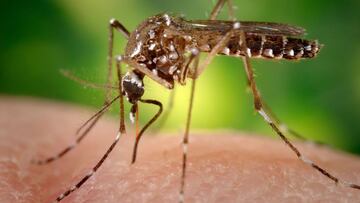Florida to release 750m genetically modified mosquitoes
The project is designed to reduce the natural population of Aedes aegypti, which carry diseases including Dengue fever, Zika and chikungunya.

The state of Florida is pushing ahead with plans to release 750 million genetically modified mosquitoes in a bid to reduce the population and stem the spread of diseases including dengue fever and Zika. The initiative has been approved by officials in the Florida Keys and is due to take place over a two-year period starting in 2021.
Under the guidance of the Florida Keys Mosquito Control District and US-owned. UK based biotechnology company Oxitec, the genetically modified mosquitoes will be released into the environment with the aim of mating with the naturally occurring Aedes aegypti population, (although the insect is not native to Florida). The lab insects, which are all male, do not bite and it is hoped they will mate in the wild with female mosquitoes which carry diseases including Dengue, Zika, chikungunya and yellow fever and spread them through biting humans. There have been up to 50 reported cases of Dengue in the Florida Keys this year according to the Tampa Bay Times.
"A Jurassic Park experiment"
#Oxitec Announces Landmark @FlKeysMosquito
— Oxitec Ltd (@Oxitec) August 19, 2020
Approval of #FloridaKeys Pilot Project to Combat #Mosquito that Transmits #Dengue, #Zika.
Read our press release here 🦟🌴🌞#PublicHealth #Sustainability
Press release: https://t.co/dIduMRll8V
Learn more: https://t.co/ktta2W6a9I pic.twitter.com/L9jccoLeRi
A press release from Oxitec said that the mosquito release programme could reduce the costs incurred by traditional methods of containment, such as pesticides, by up 90 percent. It also reported a 95.1 percent reduction in the number of disease-carrying Aedes aegypti in urban areas after a 13-week project in the Brazilian city of Indaiatuba.
Related stories
However, various environmental groups have criticized the project. Jaydee Hanson, policy director for human genetics, nanotechnology and synthetic biology at the International Center for Technology Assessment, likened it to something out of Hollywood: “The administration has spent millions of dollars of tax payer money on a Jurassic Park experiment.”
Hanson also noted that the United States Environmental Protection Agency has not carried out a full study of the potential environmental impact of releasing the mosquitoes into the wild could potentially have.

